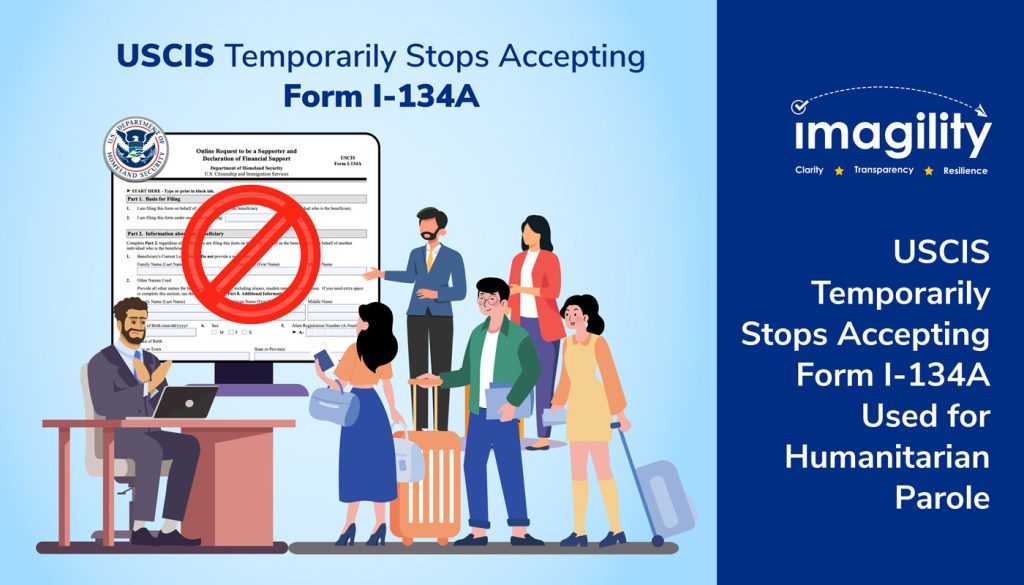U.S. Citizenship and Immigration Services (USCIS) has announced a temporary suspension of Form I-134A, the “Online Request to be a Supporter and Declaration of Financial Support,” which is used in humanitarian parole applications. USCIS took this decision followed by President Donald Trump’s executive order, “Securing Our Borders,” meant to review all humanitarian parole programs.
What Is Form I-134A?
Form I-134A, also known as the Online Request to be a Supporter and Declaration of Financial Support, is an online form submitted to U.S. Citizenship and Immigration Services (USCIS) by individuals wishing to sponsor a foreign national for entry into the United States. This form is for financial sponsorship and is currently accepted only for two immigration programs:
- Sponsorship for Ukrainian refugees under the Uniting for Ukraine program.
- Sponsorship for migrants from Cuba, Haiti, Nicaragua, or Venezuela through the new humanitarian parole program for these countries.
Moreover, Form I-134A requires sponsors to provide detailed financial information, demonstrating their ability to support the beneficiary financially during their temporary stay in the U.S. under humanitarian parole. It is used to show that the sponsor has sufficient resources to assist the beneficiary during the stay in the country.
How Will It Impact Applicants?
It is evident that suspension of form I-134A will lead to disruptions in all humanitarian programs. Since several programs rely on form I-134A to support the financial sponsorship of beneficiaries, suspending it will cause delay to humanitarian parole processings. However, it’s important to note that this suspension does not impact other visa processes, such as family-based and employment-based.
Conclusion
The temporary suspension of Form I-134A by USCIS marks a significant change for individuals seeking to sponsor migrants under humanitarian parole programs. As USCIS reviews its policies following President Trump’s executive order, applicants may face delays or uncertainty in their processes.
While this temporary suspension affects specific programs, it does not extend to other visa categories. For now, those relying on humanitarian parole should be prepared for potential disruptions and await further guidance from USCIS.










